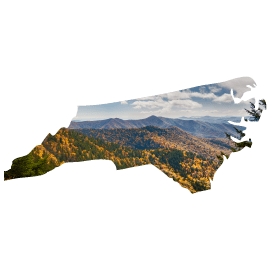Alternate Route Preparation: North Carolina
Expanding the Pool of Teachers Policy
Analysis of North Carolina's policies
North Carolina does not ensure that its alternate route candidates will receive streamlined preparation that meets the immediate needs of new teachers.
Candidates must follow a plan of study prescribed by their college or university with a minimum of six semester hours per year until the plan has been completed.
All employing school districts must provide a two-week, pre-work orientation that includes lesson planning, classroom organization, classroom management and an overview of the state accountability system, including the standard course of study and end-of-grade and end-of-course testing.
There is no requirement for practice teaching. Every candidate is assigned a mentor on or before the first day on the job.
Candidates must complete licensure requirements within three years.
Recommendations for North Carolina
Establish coursework guidelines for alternate route preparation programs.
The state should articulate guidelines regarding the nature and amount of coursework required of candidates. Simply mandating coursework without specifying the purpose can inadvertently send the wrong message to program providers—that "anything goes" as long as credits are granted. However constructive, any course that is not fundamentally practical and immediately necessary should be eliminated as a requirement. Requirements should be manageable and contribute to the immediate needs of new teachers. Appropriate coursework should include grade-level or subject-level seminars, methodology in the content area, classroom management, assessment and scientifically based early reading instruction.
Ensure that new teachers are supported in the first year of teaching.
The state should offer a highly structured, well-supervised induction program for all alternate route candidates. This should include more detailed mentoring guidelines to ensure that new teachers will receive the support they need to facilitate their success in the classroom. Effective strategies include practice teaching prior to teaching in the classroom, intensive mentoring with full classroom support in the first few weeks or months of school, a reduced teaching load and release time to allow new teachers to observe experienced teachers during each school day.
Ensure program completion in less than two years.
North Carolina should consider shortening the length of time it takes an
alternate route teacher to earn standard certification. The route
should allow candidates to earn full certification no later than the
end of the second year of teaching.
State response to our analysis
North Carolina recognized the factual accuracy of this analysis. The state added that the Statewide Evaluation Committee reviews all proposals for alternate-licensure programs and only recommends for approval those that address the Professional Teaching Standards, are responsive to the needs of the partnering school district and are comprehensive in nature. Ultimately, the State Board of Education must approve all alternate-licensure programs. The state contends that the majority of alternate-licensure programs in North Carolina are streamlined.
Select another topic
Delivering Well Prepared Teachers
- Admission into Preparation Programs
- Elementary Teacher Preparation
- Elementary Teacher Preparation in Reading Instruction
- Elementary Teacher Preparation in Mathematics
- Middle School Teacher Preparation
- Secondary Teacher Preparation
- Secondary Teacher Preparation in Science
- Secondary Teacher Preparation in Social Studies
- Special Education Teacher Preparation
- Assessing Professional Knowledge
- Student Teaching
- Teacher Preparation Program Accountability
Expanding the Pool of Teachers
Identifying Effective Teachers
- State Data Systems
- Evaluation of Effectiveness
- Frequency of Evaluations
- Tenure
- Licensure Advancement
- Equitable Distribution

